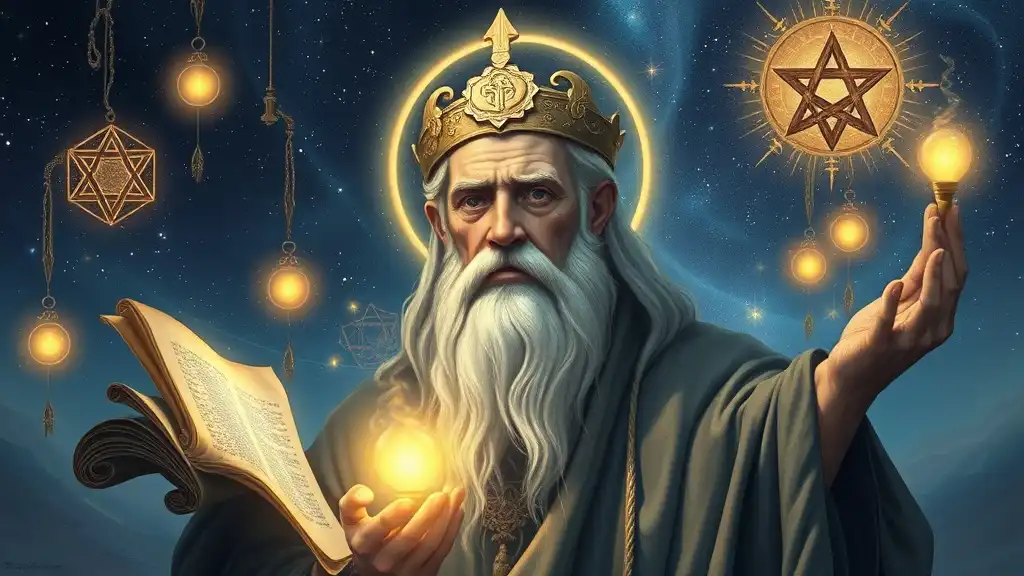Mordecai holds a significant place in spiritual and historical contexts, especially within the narratives of the Hebrew Bible. He is known primarily for his role in the Book of Esther, where his character embodies resilience, courage, and faith. Exploring the life of Mordecai reveals profound spiritual lessons that resonate even today, urging us to reflect on our own journeys of faith and advocacy.
Historical Context of Mordecai
Origins of the Name
The name "Mordecai" has roots in ancient languages, deriving from the Babylonian deity Marduk. It highlights a connection to the exilic experience of the Jewish people. Understanding this origin provides insight into the cultural and historical backdrop of Mordecai's life, painting him as a figure who navigates identity and faith amidst external challenges.
Role in the Book of Esther
Mordecai is portrayed as a key figure in the Book of Esther. An uncle and guardian to Esther, he plays a crucial role in her rise to become queen and ultimately in saving the Jewish people from Haman's plot. His wisdom, guidance, and steadfastness in the face of danger exemplify the importance of mentorship and familial love. Key events, such as his refusal to bow to Haman and the subsequent fallout, highlight his commitment to faith and integrity.

The Spiritual Significance of Mordecai
Mordecai as a Symbol of Faith
In Mordecai's character, we find a robust representation of faith. His actions reflect immense courage, particularly when he encourages Esther to advocate for their people. He embodies the essence of trusting in divine providence, demonstrating that true faith often requires us to rise against adversity. Mordecai offers spiritual support not just for Esther's journey, but also for the collective Jewish community facing persecution. His belief that their salvation is possible feeds into a larger narrative of hope.
Insights from Mordecai’s Actions
Mordecai's life is filled with powerful teachings around justice and advocacy. His refusal to bow to Haman is not merely an act of rebellion but a declaration of identity and principle. It teaches us the importance of standing firm in our beliefs, even when the cost is high. Furthermore, Mordecai's advocacy for Esther serves as a reminder of the necessity of speaking up for justice and inclusion. Each of his actions forms a tapestry of courage that invites readers to consider their own roles in matters of justice and faith.

Lessons from Mordecai's Life
Strength and Resilience
Mordecai exhibits remarkable strength in the face of adversity, illustrating the power of resilience. His ability to navigate challenges—whether personal or communal—teaches us that perseverance is essential for overcoming obstacles. He embodies an unwavering spirit that persists, encouraging each one of us to draw on our inner strength amid trials.
The Power of Advocacy
Mordecai’s life emphasizes the transformative power of advocacy. His simple act of refusing to bow to Haman sends ripples through the narrative, showcasing how one person's voice can incite change. Stand up for the marginalized—this is the core of his message. Mordecai teaches us that advocating for what is right is an act of spirituality, not only for the individual but also for the entire community. His influence demonstrates that advocacy is a communal responsibility, and every voice matters in creating a just society.

Mordecai's Relevance in Modern Spirituality
Finding Inspiration in Mordecai’s Story
The story of Mordecai invites us to find inspiration in our daily lives. His unwavering faith and courage remind us of the importance of remaining true to our values. The lessons of standing brave in the face of injustice resonate today. Practical applications of his teachings include extending compassion to those in need, actively participating in community service, and nurturing a strong sense of identity and purpose in all our actions.
Connecting with the Spirit of Mordecai
To embody the spirit of Mordecai, we can engage in meditation and reflective practices. Consider dedicating a few moments each day to reflect on Mordecai's strength and what it means for your own life. What challenges are you facing, and how can you respond with faith and integrity? Whether through journaling, prayer, or meditative contemplation, allow Mordecai’s story to guide you in your spiritual journey.

Conclusion
Mordecai’s life presents an enduring message of faith, courage, and community advocacy. His story is more than an ancient tale; it is a spiritual roadmap that calls us to reflect on our roles in the world. By embracing the lessons that Mordecai provides, we can navigate our own lives with strength, prudence, and a commitment to justice. Let us take inspiration from him and encourage one another to engage in the sacred work of advocacy and integrity in our contemporary lives.



















